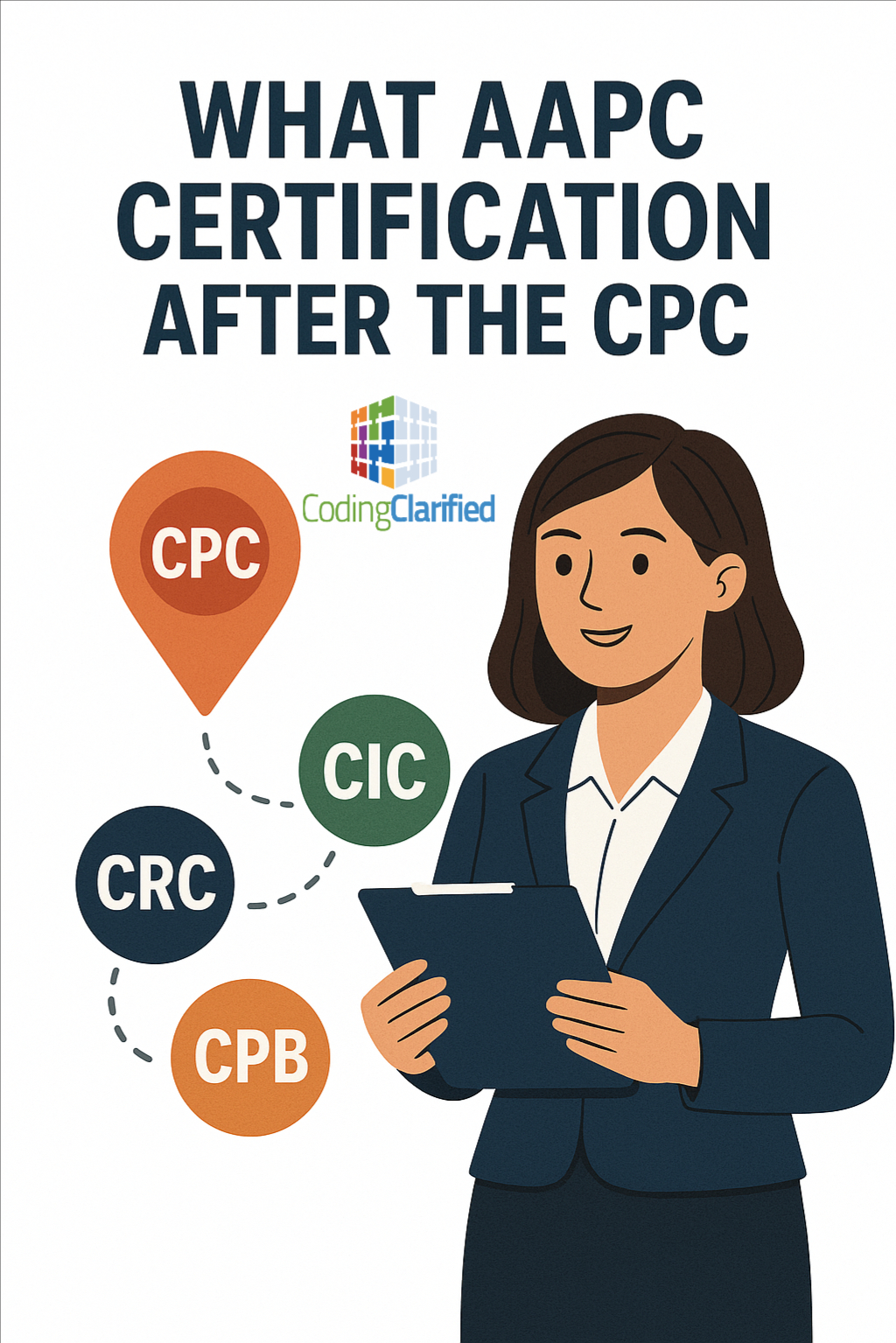For many coders, earning the Certified Professional Coder (CPC®) credential from the AAPC is the first major milestone in their career. It validates a strong foundation in CPT®, HCPCS, and ICD-10-CM coding for physician and outpatient services. But once you’ve achieved your CPC, the natural next question is: What AAPC Certification after the CPC is most beneficial to pursue next?
The answer depends on your career goals, coding specialty interests, and the type of healthcare setting you want to work in. Let’s break it down.
Certified Inpatient Coder (CIC®)
-
Best for coders who want to expand into hospital and facility coding.
-
Focuses on ICD-10-CM and ICD-10-PCS for inpatient hospital services.
-
Beneficial if you’re aiming for a career in hospital coding, DRG assignment, or inpatient auditing.
Certified Outpatient Coder (COC®)
-
Ideal if you want to specialize in outpatient hospital and facility coding.
-
Covers CPT®, HCPCS, and ICD-10-CM for hospital-based services such as same-day surgeries, ER visits, and outpatient therapies.
-
Valuable for those moving from physician practices into hospital outpatient departments.
Certified Risk Adjustment Coder (CRC®)
-
Focuses on HCC (Hierarchical Condition Category) coding and chronic condition capture.
-
Growing demand due to Medicare Advantage and value-based care.
-
Perfect if you want to advance into risk adjustment, auditing, or payer-side positions.
Certified Professional Medical Auditor (CPMA®)
-
Specializes in auditing coding and documentation for compliance and revenue integrity.
-
Great next step if you’re detail-oriented and want to transition into compliance, auditing, or management.
-
Often paired with CPCs who want to build leadership and oversight roles.
Certified Documentation Expert (CDEO®)
-
Concentrates on clinical documentation improvement (CDI).
-
Helps coders ensure provider documentation supports accurate coding and risk adjustment.
-
Especially useful if you work closely with physicians or in CDI departments.
Other Specialty Certifications
AAPC also offers more than 20 specialty credentials (e.g., cardiology, general surgery, dermatology, obstetrics/gynecology). These may be beneficial if you want to:
-
Establish yourself as a subject-matter expert in one area.
-
Work in a specialized clinic where advanced knowledge is required.
Choosing Your Next Certification
Ask yourself:
-
Do I want to work in a hospital or physician practice?
-
Do I see myself in auditing, compliance, or CDI?
-
Am I interested in value-based care and risk adjustment?
Your answers will guide you. For many CPCs, the most common “next step” certifications are CIC, COC, CRC, or CPMA. Each opens the door to more opportunities, higher salaries, and career advancement.
Pro Tip: Always check local job postings in your area. Employers often list “preferred” certifications, which can help you decide which credential will give you the most career advantage.
Medical Coding Credentials https://codingclarified.com/medical-coding-credentials/
AAPC certifications https://www.aapc.com/certifications

